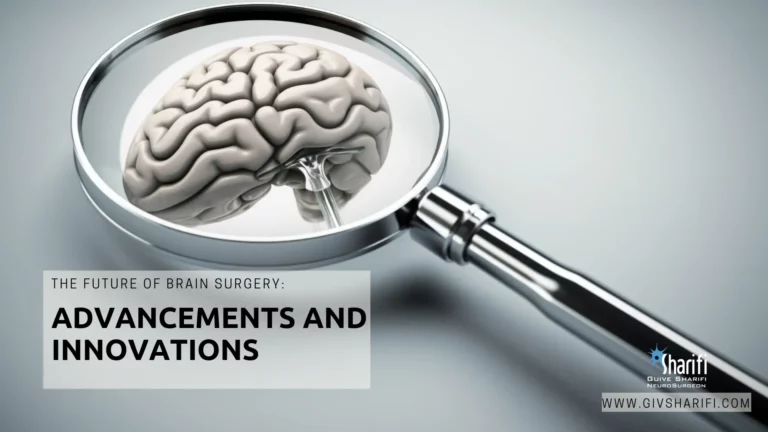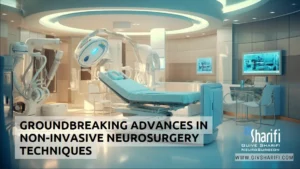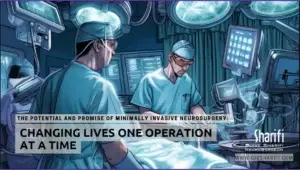Introduction:
Brain surgery advancements have come a long way since the first successful operation was performed in 1885. Over the years, advancements in technology and medical research have made it possible to perform complex surgeries with greater accuracy and safety. In this blog post, we’ll explore some of the latest innovations in brain surgery and how they’re shaping the future of this field.
Advancements in Brain Imaging:
One of the most significant advancements in brain surgery has been in the field of brain imaging. Magnetic resonance imaging (MRI) and computed tomography (CT) scans have revolutionized the way doctors diagnose and treat brain conditions. These technologies provide a clear and detailed image of the brain, allowing doctors to identify tumors, lesions, and other abnormalities with greater precision.

Robotic Assistance:
Another significant innovation in brain surgery is the use of robotic assistance. Robotics can aid surgeons in performing complex and delicate procedures with greater accuracy and safety. This technology enables surgeons to operate on smaller areas of the brain with minimal damage to surrounding tissue, reducing the risk of complications and improving patient outcomes.
Maybe this article is attractive to you: A Guide to Understanding Spinal Cord Injuries and Neurosurgical Treatments
Non-Invasive Techniques for Brain surgery advancements:
Advancements in non-invasive techniques have also had a significant impact on brain surgery. Transcranial magnetic stimulation (TMS) and gamma knife radiosurgery are two examples of non-invasive techniques that have been developed to treat brain conditions. These techniques use focused beams of energy to target specific areas of the brain, eliminating the need for incisions or invasive procedures.

Conclusion:
The future of brain surgery looks promising, thanks to the latest refinements and innovations in the field. From robotic assistance to non-invasive techniques, these developments are transforming the way doctors diagnose and treat brain conditions. As technology continues to evolve, we can expect to see even more significant improvements in brain surgery that will improve patient outcomes and enhance our understanding of the brain.
All the photos in this article are generated by AI.





